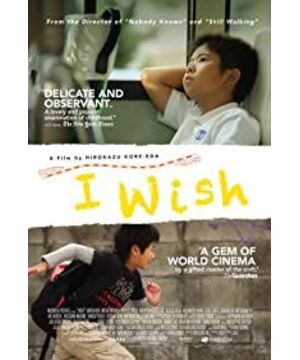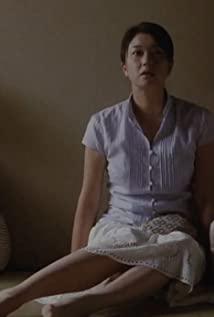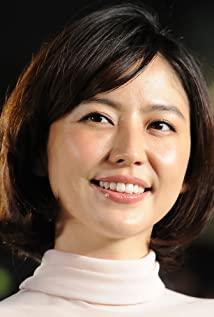At the beginning, I thought "Miracle" was a modern interpretation of Yamada Yoji's "Family". It talked about the fragmentation and separation of a family, experiencing ups and downs all the way, making a railway movie (road movie), and finally being reunited. As a result, it was Hirokazu Ke serious and handed over a happy and lively children's film. Its brightness is unique in Shizhi's works. Compared with 2004's "Nobody Knows", the director's mood is completely different, and his attitude toward misfortune has also changed.
Even if the divorce of the parents caused the separation of the brothers, "Miracle" hardly shows the conflicts between the parents and the two generations. The story is centered on the brothers, and the gold medal supporting actors also surround the children. From their lives, studies, and partners, it spreads continuously, step by step towards the end of witnessing miracles and fulfilling their wishes. It is also said that "Miracle" is just another romantic interpretation of children running away from home. This is true. They have the cooperation of the teacher and the help of the grandfather, and the scenery on the road is beautiful. However, through the exchanges between the brothers afterwards, it was still not the Dzogchen that ordinary people expected.
In "Miracle", the audience saw the opening of the Shinkansen, children would mention it, and the elderly were discussing it. On the other side, the movie talks about the eruption of Sakurajima volcano, the leaving and leaving of the Tower of the Sun, and the future of Kagoshima (the local dessert of Kagoshima). In the calm life, due to the fact that the family is split, "Miracle" has a trace of worry. That is the world in the eyes of single-parent children, and it is also a real problem in Japanese society.
Faced with the family combination of Harada Yoshio, Kishirin, Abe Hiroshi and Natsukawa Yui, "Miracle" is bound to remind people of "Non-stop". Like "Non-stop", "Miracle" also talks about the family, the smallest unit of society. Later, there was a child and flower (Autumn Sakura), an unknown cemetery. In my opinion, the two movies do have a lot of similarities, but more of them come from the secret itself. "Non-stop" is full of secrets, family secrets, father's secrets, children's secrets... The same is true of "Miracle". The brother's action agreement is a secret, and every child has a secret in his heart. Those with more good things can also look back like this. The beginning and the end of "Non-stop" are all trains passing by, which seems to remind the audience that "Miracle" is not far away.
The film always uses cross montages to show the lives of two brothers, one in Kagoshima, one in Fukuoka, and one north and south. When meeting and reunion became the heartfelt voice of a pair of brothers, the film did not intend to accuse them, but to let them meet smoothly. When the Shinkansen trains coming from north and south met, Yoshie showed his amazing skills again. He edited thirty short shots—also empty shots. They are all the wishes of the children, flashing past quickly. . And precisely because the wishes of the two brothers were not made, the realm of "Miracle" was even higher at that moment. From this perspective, "Miracle" can be regarded as a decent growth film, and it does not stop at the kind of chic and moving soul.
Regardless of JR's dominance, "Miracle" is still an author's film. If you start with regional themes, it can also be classified as a Japanese movie with Kyushu theme. I was thinking for a while that if "Miracle" was handed over to Shinji Aoyama for filming, he would definitely make a road film, like a fake replacement. However, even if you look at contemporary Japanese directors, they will not have the comfort and warmth of Yizhi. [Southern Metropolis Daily Muwei Movie http://gcontent.oeeee.com/2/a2/2a27b8144ac02f67/Blog/ef7/10a79f.html ]
View more about I Wish reviews











